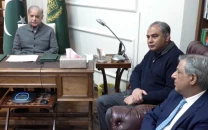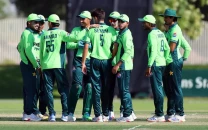Pakistan gears up to digitalise head-counting
Census experts fear use of technology may introduce new errors to the process

As the 2023 general elections close in, spadework for the country’s seventh census has also been set in motion. With a budget of Rs23 billion, this will be the Islamic Republic’s first digital population survey, making it a concrete step towards Digital Pakistan— a rallying cry of the ruling Pakistan Tehreek-i-Insaf (PTI) government.
A sum of rupees five billion has been allocated for the mega survey from the current financial year, while each enumerator is to be handed a tablet device for data entry in advance of the census process, which is expected to take 18 months to complete.
Looking back
In comparison, the country’s 2017 census that was conducted in two phases, after 19 years, under the supervision of Pakistan Bureau of Statistics, had costed the government Rs21 billion. The provisional report on population was published in the same year, following which serious objections were raised by the smaller provinces, especially the Sindh government and political parties in Karachi.
Their grievances majorly stemmed from the 2017 census declaring the population of Karachi to be only 16,240,894 people. A statistic that was categorically rejected by local parties including the Muttahida Qaumi Movement, Jamaat-e-Islami, Pak Sarzamin Party, Muhajir Qaumi Movement – Haqiqi, Mohajir Ittehad Tehreek and others. Per them, the population of Karachi was supposed to somewhere around 30 million.
Read Stakeholders to be taken in confidence for new census: PM
At the time, the cabinet of the former Pakistan Muslim League Nawaz (PML-N) government and the Council of Common Interests (CCI) had decided that five per cent of the census data would be scrutinised to allay concerns over the new survey— something the PML-N government could not do in its tenure.
No different was the PTI government, that also later failed to audit the data as agreed, in its three years. Eventually, in April this year, a meeting of the Council of Common Interests chaired by Prime Minister Imran Khan approved the release of the final report with a majority vote.
In this meeting, Khan claimed that immediate release of the final report of the 2017 census is necessary for the NFC award and the provision of resources to the new proportion of the population. Having that said however, the premier had reassured that his government would soon conduct a new census using modern technology to allay concerns over the provincially contested survey.
Moving forward
This time however, it appears that all provincial governments have been taken into confidence prior to the seventh census. “Meetings of concerned officers are being held, while the he strategy for the seventh census was also discussed at the federal cabinet meeting two days ago,” confirmed an official of the Bureau of Statistics on conditions of anonymity.
To keep the counting process fair and free of errors, the official said that each enumerator will handed a high-tech tablet to conduct the survey, for which all entered information will immediately reach the control room. “This will not only keep the data safe but also speed up the whole process,” he commented.
Per the official, the field work of the seventh census is slated to start from August 2022, while the results of the census are due for release in January or February 2023. On the basis of which, the next general elections will be contested.
Read more Cabinet gives nod to ‘de jour’ census
The official said that the statistics department has been directed to submit the final report of the census to the Election Commission six months before the next election, so that it can form new constituencies under the new census.
What could go wrong
Although PTI Leader of Opposition in Sindh Assembly Haleem Adil Sheikh, much like the rest of his party, believes that the use of modern technology in the seventh census will guarantee transparency, census expert and researcher Dr Syed Nawaz Al-Huda thinks otherwise.
Expressing serious concerns over the use of technology in the upcoming census, Dr Huda urges the government to stick to manual operations for the survey. As for the issue of transparency, the expert believes that in principle, it rather a matter of intention— if the intention is righteous, a manual census can be conducted on a transparent basis.
“Tablets will be provided to enumerators across the country. If data is entered incorrectly in the device, there will be no scope for review. In the manual survey, there is a circle supervisor to check the block enumerator and a superintendent in charge is appointed to check it,” he highlighted, while speaking to The Express Tribune.



















COMMENTS
Comments are moderated and generally will be posted if they are on-topic and not abusive.
For more information, please see our Comments FAQ